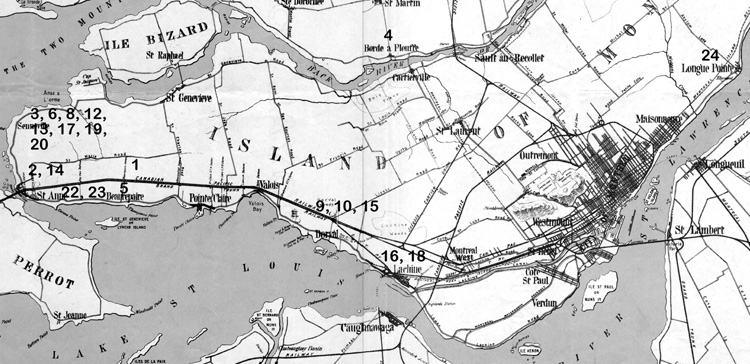Spring Colloquium: "Urban Toponymy and Crime in Hector Berthelot’s Mystères de Montréal"
Event

Please join us for the 2015 Urban Studies Graduate Student-Faculty Colloquium Series, in the Urban Studies Office: 130 McNeil Building, 3718 Locust Walk. The series provides an opportunity for graduate students who are affiliated with the Urban Studies Certificate program to come together and share their work, and get feedback from a discussant who represents a different discipline from their own. Breakfast included!
Author: Adam Cutchin, Ph.D. Candidate in French, Penn Department of Romance Languages
Abstract: In Hector Berthelot’s Mystères de Montréal (1879-1881), we can see many ways the novel capitalizes on elements of the Mystères de Paris, Eugène Sue’s wildly successful serial novel that launched a worldwide phenomenon of urban mysteries that lasted throughout the nineteenth century. In Berthelot’s text, as opposed to other novels by the same name, we see a proliferation of urban spaces and specifically Montréalais toponymy that firmly establish Montreal as an urban
locus for not only commerce and politics, but also crime. The city in Berthelot’s work has an almost magnetic quality, drawing in his characters, sweeping them up, willingly or not, in a vortex of crime that complicates the financial narrative that dominates the plot of the novel. As the members of the central love triangle— formed by the beautiful but disfigured Ursule, the jealous Bénoni, and the duplicitous Cléophas— find their fates tied to the fabulously wealthy Bouctouche family, the city of Montreal serves not simply as a background for their constant convergences and divergences, but as a key figure in the plot of the novel. Essential, rather than incidental, the public spaces of Montreal— hotels, streets, squares, churches, and prisons— all have their own roles to play. With good reason, Gilles Marcotte calls Berthelot’s novel “the most purely montréalais of nineteenth-century novels.” Ultimately, place names in the Mystères de Montréal both confer verisimilitude on the text, and, in the context of an overwhelmingly rural, agrarian, and sparsely populated province, serve to set up Montreal as the modern, productive, and criminal Québécois homologue of Paris.
